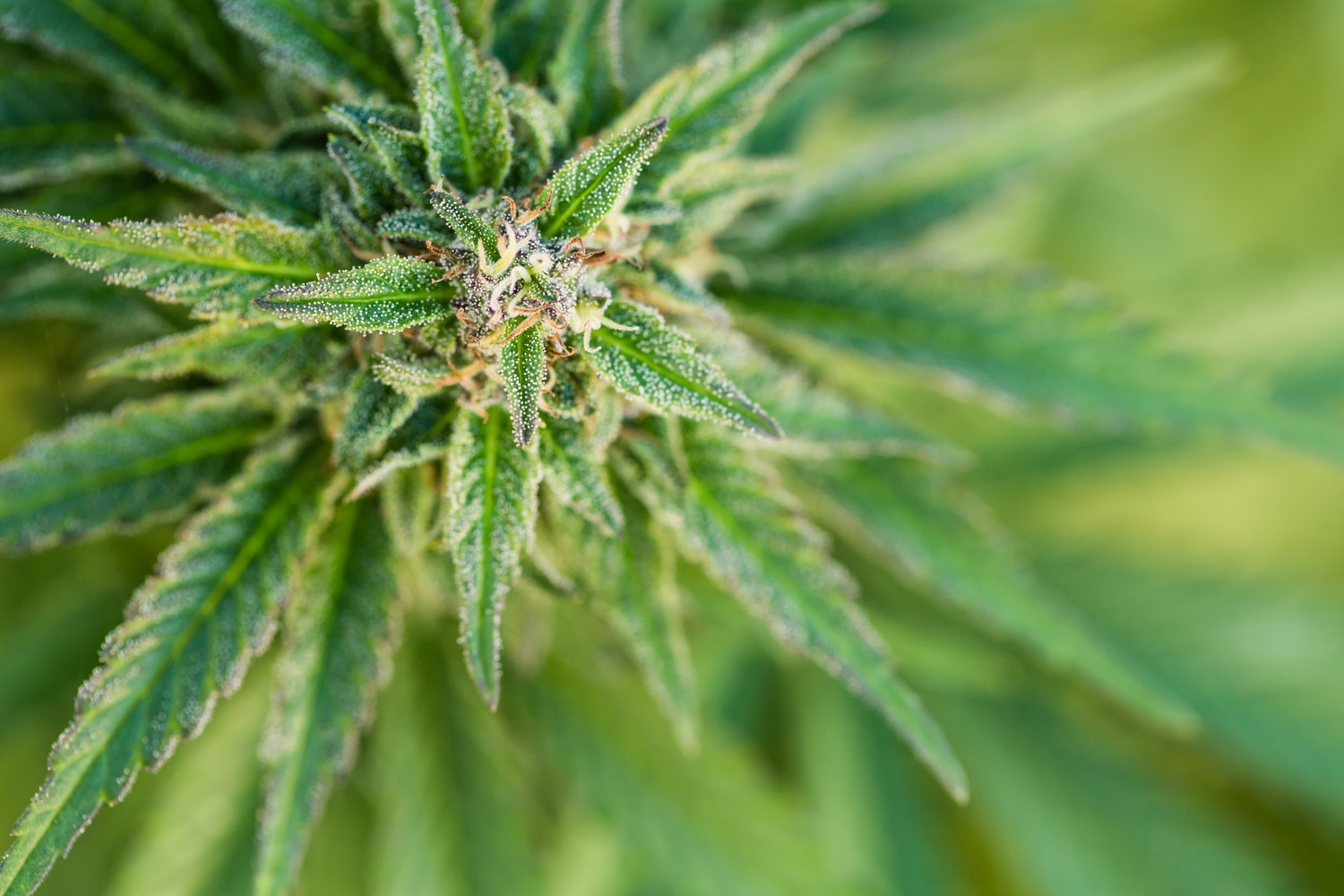Chronic kidney disease (CKD) and kidney injury are two significant threats to renal function. Depending on the cause, kidney health issues can – at best – affect your quality of life and – at worst – be fatal.
Conventional treatments have existed for quite a while, and some are very effective. Unfortunately, the potential adverse effects can make those options unbearable. Naturally, some people with chronic kidney disease or kidney injury (among others) decide to look outside mainstream options.
Cannabinoid medicine exploded in recent years, with millions claiming cannabidiol (CBD) helped relieve their symptoms where prescription medication doesn’t cut it.
So how can CBD oil help with chronic kidney disease – or any renal disorder? It’s a complicated topic that, despite some research, leaves more questions than answers.
What is CBD Oil?
If you’re familiar with CBD, you likely know about CBD oil. Content and potency vary depending on the oil and brand. But at its core, CBD oil is a type of natural extract from all forms of cannabis Sativa L. – the plant species often (incorrectly) separated into “marijuana” and “hemp.”
Manufacturers extract the CBD and other compounds using methods like hydrocarbon (butane), alcohol, or CO2. Once separated, the CBD is infused into a carrier oil, like MCT, grapeseed, hemp, or coconut.
You then ingest a pre-measured amount based on your CBD dosage needs. But although many claim CBD works for symptom management, there are also CBD oil side effects to consider. We’ll get to that shortly.
How CBD is Absorbed Into the Body
CBD is absorbed into the body using a vast internal network known as the endocannabinoid system (ECS). The ECS consists of specific pathways known as the CB1 and CB2 receptors located in the central nervous and peripheral systems.
Cannabinoids like THC bind to both the CB1 and CB2, which is why recreational or medical cannabis users experience mental and physical effects.
Other cannabinoids interact with just one receptor, but CBD is one of many exceptions. Instead, cannabidiol impacts other receptors and pathways, ultimately altering the shapes of the CB1 and CB2 receptors.
This reaction affects how external (phytocannabinoids) and internal (endocannabinoids) affect the brain and body. These “adjustments” are often beneficial, as are CBD’s interactions with the serotonin, vanilloid, and other vital receptors.
But before it can do all of that, CBD needs to get into your bloodstream. There are several ways to do this. All consumption methods have advantages and disadvantages, which alter the strength, duration, and effects of CBD.
Those being treated for chronic kidney disease or (other kidney diseases) should also consider potential drug interactions.
Smoking
Inhalation offers a more authentic experience for vape and joint smokers. When consumed through the lungs, CBD hits the bloodstream almost instantly. As a result, you notice effects within minutes. However, the effects wear off faster than any other method – usually within two to four hours.
Many vendors don’t offer inhalable products, often due to health concerns. We’re all aware of the vape illness epidemic that dominated the news in 2019 (and continues to this day). We also don’t know the long-term damage of inhaling burnt cannabis plant matter – although it seems safer than tobacco.
Ingestion
Ingestion offers a broad range of options for taking CBD. Cannabidiol extracts can be infused into hundreds of foods and drinks, from desserts smoothies – even beer and wine! A few examples are:
With ingestion, the majority of CBD is broken down in the liver. Consequently, eating or drinking CBD is the slowest-acting option. But it makes up for this by lasting up to eight hours – longer than any other method.
Topicals
Topicals are another diverse group of CBD products. But unlike smoking and eating, topicals don’t enter your bloodstream. Applied directly to the skin, these products provide a more focused, instant effect.
Is CBD Oil Excreted Through the Kidneys?
We know how CBD enters the body, but how does it leave? Considering urine tests are a common way to detect drug use, you’d think the kidneys eliminate a lot of THC and CBD. But a 2019 review in the Canadian Journal of Kidney and Health Disease shows that nothing could be further from the truth.
The authors explain THC and CBD mostly exit through the feces. As a result, they feel CBD’s minor effects on kidneys don’t require a CBD dosage adjustment. However, they’re unsure if we eliminate minor cannabinoids in the same fashion.
What are the Side Effects of CBD Oil?
Studies universally found that CBD is well-tolerated with no possibility for abuse or addiction. Side effects of CBD oil are mild, especially compared to prescription medication. Still, it might not be for you. Keep an eye out for some common side effects:
- Dry mouth
- Appetite changes
- Nausea
- Fatigue
- Insomnia
- Dizziness
- Diarrhea
High doses of CBD – especially when introduced immediately without titrating – are more likely to trigger those effects. If these problems persist or worsen, stop using CBD.
Since hemp oil contains little to no tetrahydrocannabinol (THC), CBD extracts shouldn’t make you high. However, if you feel intoxicated, it’s possible the manufacturer mislabeled their product.
Common Causes of Kidney Disease
According to the National Institute of Diabetes and Digestive and Kidney Diseases, chronic kidney disease (CKD) is usually caused by diabetes or high blood pressure.
However, there are many other reasons, including (but not limited to):
- Drug interactions
- Poison
- Infection
- Physical injury
- Genetics
Symptoms of Kidney Disease
The symptoms of kidney disease can be difficult to pinpoint since various common infections or toxins often cause them. However, if you have high blood pressure or diabetes, pay extra close attention to the following signs:
- Nausea and vomiting
- Back pain
- Increased or decreased urination
- Fatigue
- Sleep issues
- Muscle cramps
- Dry or itchy skin
- Swelling of the feet or ankles
- Chest pain
- Shortness of breath
- Hypertension (high blood pressure)
Regardless of the cause, chronic kidney disease is a serious threat to kidney function. If you’re concerned about your renal health, talk to a doctor as soon as possible.
Does CBD Oil Hurt Your Kidneys?
CBD oil may hurt the kidneys, but it also might help renal function. Preliminary research is either promising, inconclusive, or negative.
We’ll look at all the results next.
What Studies Say About CBD Oil Side Effects on Kidneys
The relationship between chronic kidney disease (or any other kidney health issue) and CBD oil isn’t well understood. Some research looks positive.
For example, a 2009 Study in the Journal of Pharmacology and Experimental Therapeutics discovered that CBD might help alleviate inflammation, oxidative stress, and cell destruction, reducing nephrotoxicity.
“Nephrotoxicity” refers to kidney damage from drugs or toxins. This condition makes it difficult to eliminate urine or waste, leading to a potentially deadly outcome.
Years later, a 2015 review of existing literature in the Journal of Basic and Clinical Physiology and Pharmacology discovered CB1 and CB2 receptors in the kidneys.
The authors of the said review found that the activation of the CB1 receptors regulates renal vascular blood flow. Meanwhile, the renal CB2 receptors reduce the effects of inflammation, oxidative stress, and renal fibrosis. These findings support and explain the 2009 study’s observations.
Subsequent 2017 research in the American Journal of Physiology also concluded that cannabinoids have potentially beneficial effects on kidneys. However, they caution that we don’t know about the effects of CBD on acute kidney injury (AKI) or chronic kidney disease.
The following study shows how accurate this warning may have been.
Among the promising or inconclusive findings are some upsetting discoveries. One 2018 study in the American Society of Nephrology Found that cannabis consumers with impaired kidney function showed a faster decline than non-cannabis users.
One important detail, however, is that these subjects used THC and CBD products. This makes it difficult to determine if CBD or THC is responsible (if at all).
However, the mix of positive and negative findings might be attributed to CBD rather than CBD products. According to
2o2o review from Current Opinion in Nephrology and Hypertension says, “There is no evidence to suggest that CBD has any adverse effect on kidney function. In fact, CBD prevented cisplatin-induced nephrotoxicity in a mouse model by reducing oxidative stress. However, some products may contain toxic contaminants such as heavy metals, pesticides, and solvents.”
So are CBD’s effects on kidneys good or bad? For now, we don’t know. But even if cannabidiol is effective, quality CBD may be hard to find. Without a green light from the Food and Drug Administration, there’s no way to guarantee CBD oil is free of the aforementioned contaminants.
Potential Benefits of CBD Oil in Kidney Diseases
The effects of CBD oil on kidney disease are mostly promising but still warrant caution. But there’s some good news. Even if CBD has no direct therapeutic effects on those organs, chronic kidney disease patients can (and do) use cannabis for symptom control.
The 2020 study above mentions CBD’s potential for pain management. Researchers believe CBD may help mitigate chronic pain related to kidney disease.
They also theorize that maybe CBD’s analgesic benefits could reduce the need for opioids – but that’s an enormous “maybe.”
Dosage and Precautions for CBD Oil and Kidneys
We know very little about the effects of CBD oil on kidneys and next to nothing about the proper CBD dosage. Unfortunately, dosing cannabinoids isn’t an exact science, despite decades of research. Synthetic cannabinoids, like Sativex and Marinol, being are a couple of exceptions.
However, those prescription drugs are designed to treat specific symptoms rather than the broad range of potential benefits assigned to CBD.
It also doesn’t help that we can’t (yet) conclusively prove that CBD oil side effects on kidneys outweigh the possible beneficial effects of CBD.
But if you feel it helps with symptoms like nausea or chronic pain, you can at least benefit from those effects.
In this case, follow the “start low and go slow” rule. Begin with the smallest dose possible (usually 2.5 to 5 mg) and increase every few days as needed.
That being said, don’t try adding CBD to your daily health routine without consulting a doctor – especially if you have kidney disease.
Summary: CBD Oil Side Effects on Kidneys
There’s some promising CBD research that could be a game-changer for those with kidney injury, chronic kidney disease, or other renal function problems.
But while exciting, we need to remember Despite some worthwhile findings, none of the potential benefits have been evaluated by the Food and Drug Administration. CBD oil isn’t intended to prevent, diagnose, or treat any illness.
However, we should see these discoveries as springboards to inspire further research.
Sources
“Causes of Chronic Kidney Disease | NIDDK.” National Institute of Diabetes and Digestive and Kidney Diseases, Oct. 2016, www.niddk.nih.gov/health-information/kidney-disease/chronic-kidney-disease-ckd/causes. Accessed 25 Nov. 2021.
CDC. “Outbreak of Severe Pulmonary Disease Linked with E-Cigarette Product Use.” Centers for Disease Control and Prevention, 6 Sept. 2019, www.cdc.gov/tobacco/basic_information/e-cigarettes/severe-lung-disease.html. Accessed 25 Nov. 2021.
Ho, Claudia, et al. “A Review of Cannabis in Chronic Kidney Disease Symptom Management.” Canadian Journal of Kidney Health and Disease, vol. 6, Jan. 2019, p. 205435811982839, www.ncbi.nlm.nih.gov/pmc/articles/PMC6388458/, 10.1177/2054358119828391. Accessed 26 Nov. 2021.
Nesbitt, Hal. “American Society of Nephrology | Kidney Week – Abstract Details.” Www.asn-Online.org, www.asn-online.org/education/kidneyweek/2018/program-abstract.aspx?controlId=3017229. Accessed 26 Nov. 2021.
Pan, Hao, et al. “Cannabidiol Attenuates Cisplatin-Induced Nephrotoxicity by Decreasing Oxidative/Nitrosative Stress, Inflammation, and Cell Death.” Journal of Pharmacology and Experimental Therapeutics, vol. 328, no. 3, 12 Dec. 2008, pp. 708–714, 10.1124/jpet.108.147181. Accessed 26 Nov. 2021.
Park, Frank, et al. “Cannabinoids and the Kidney: Effects in Health and Disease.” American Journal of Physiology-Renal Physiology, vol. 313, no. 5, Nov. 2017, pp. F1124–F1132, www.ncbi.nlm.nih.gov/pmc/articles/PMC5792153/, 10.1152/ajprenal.00290.2017. Accessed 26 Nov. 2021.
Rein, Joshua L. “The Nephrologistʼs Guide to Cannabis and Cannabinoids.” Current Opinion in Nephrology and Hypertension, vol. 29, no. 2, Mar. 2020, pp. 248–257, 10.1097/mnh.0000000000000590. Accessed 26 Nov. 2021.









